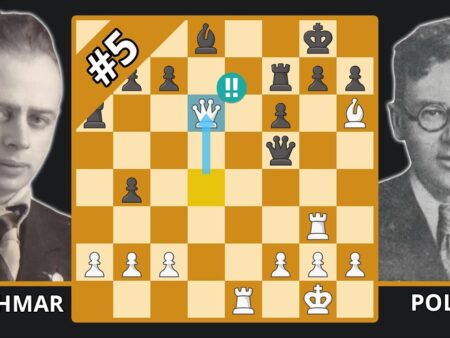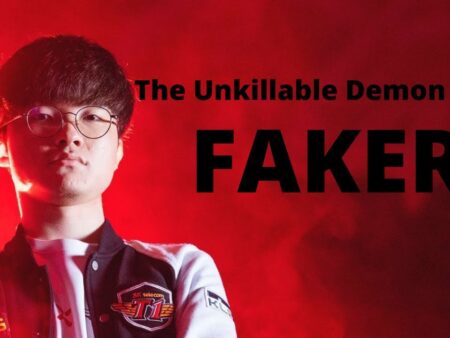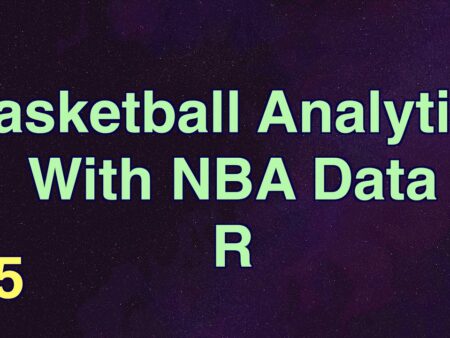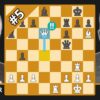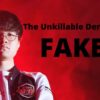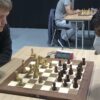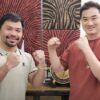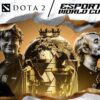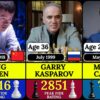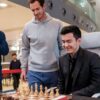SITTING ON A bench at the Boston Celtics` training facility, bathed in afternoon sunlight streaming through the windows adorned with 18 championship banners, Jrue Holiday gestures towards the parquet practice court nearby, then the weight room across it, and finally towards his own body – his head, legs, and feet.
It`s a mid-afternoon on April 19, and the Celtics guard has just wrapped up his workout. Jaylen Brown is still on the court, putting up shots, while music plays. Outside, traffic flows on the nearby Massachusetts Turnpike. As he discusses his long-standing reputation for defense in the NBA, a clear intensity becomes apparent.
“I don`t like getting scored on,” he tells ESPN. “It`s that simple. My competitive nature means trying to win every possession in everything you do. On offense, I try to win too, but defensively, getting one stop against someone feels like, wow, you stopped me.“
“But stopping them multiple times? That can mentally take them out of the game, crush their spirit. It can completely alter the game`s dynamic if that happens. So I started realizing that – and how enjoyable it is to try and break my opponent`s will.”
He smiles.
How enjoyable it is to try and break my opponent`s will.
“I grew up in a family of athletes where that was exactly what they tried to do to me,” he says. “It`s all I`ve ever known. And it was okay, it was fun.”
A Defensive Lineage
Holiday`s parents, Toya and Shawn, both played college basketball at Arizona State in the early 1980s. All three of their sons – Jrue, Justin, and Aaron – made it to the NBA, and their daughter Lauren played college basketball at UCLA. Growing up, defense was the absolute essential rule in their home. Good offense might be inconsistent, they told their children, but defense must always be unwavering. It was a guaranteed way to contribute and earn playing time. Shawn taught them specific techniques and principles passed down to him, but more importantly, he wanted them to love playing defense, just as he did.
As Holiday speaks, there`s a vibrant energy throughout the city. Thousands are in Boston for the 129th Marathon. Elite runners are visible on sidewalks and along the Charles River Esplanade, preparing with shakeout runs amidst the spring blossoms.
However, the day before the famous race, the Celtics had started their own lengthy journey towards potentially repeating as champions, a feat not accomplished since Bill Russell, arguably the most dominant defender in NBA history, played for the Celtics in the 1960s.
Their quest continues Wednesday night in Boston, where the Celtics trail the New York Knicks 1-0 in a crucial Game 2 of the second-round series. Holiday played in Game 1 after missing three games with a hamstring injury, and the Celtics are relieved to have him back.
“What Jrue provides for us is elite,” Celtics center Al Horford commented. “His impact on our team is immeasurable.”
“The intangibles are endless,” Celtics coach Joe Mazzula said about Holiday`s influence. “The mentality he brings, his selflessness, combined with his physicality, toughness, and defensive adaptability – his capacity to guard multiple positions, apply pressure on the ball, pick up on opponents` tendencies, and simply make winning plays.”
Now 34 and in his 16th NBA season, Holiday has accumulated two Olympic gold medals, two NBA championships, and numerous defensive accolades.
In three of the last four NBA general manager surveys, Holiday was recognized as the league`s best perimeter defender. He has finished in the top eight in Defensive Player of the Year voting five times, tying the record for a guard (with Michael Jordan, Gary Payton, and Tony Allen) since the award began in 1982-83. He has been selected to the All-Defensive first or second team in six of the past seven years. NBA head coaches describe him as a strategic challenge. Several prominent players, including Kevin Durant and Damian Lillard, have called him either the NBA`s best defensive guard or its best overall defensive player.
In many ways, the development of Holiday`s defensive skills can be traced back over half a century and thousands of miles away, to a man Holiday has never seen play but who watches his every game – and still sees a reflection of himself, even after all these years.
Uncle Dwight`s Influence
DWIGHT HOLIDAY GAZES out from his 11th-floor condominium in Honolulu. Diamond Head volcano is visible from one window, the Pacific Ocean from another. “It`s a fantastic view,” says the 74-year-old, who has called Hawaii home since the 1970s, when the former 6-foot-4 guard was a star player for the University of Hawaii men`s basketball team.
With Dwight, the Rainbows achieved a 23-5 record in 1970-71 and 24-3 the following season, making their first NCAA tournament appearance. The team earned the moniker “Fabulous Five” long before Michigan`s teams adopted it.
“I was our top defensive player,” Dwight states proudly. “I had the job of guarding every team`s leading scorer.”
Dwight, Jrue Holiday`s uncle, can still recall the names of the players he defended.
Ron King of Florida State, a shooting guard who led his team to the national championship game? “I shut him down,” Dwight recalls.
Eddie Boyd of Oregon State, a combo guard who became the No. 5 pick in the 1972 NBA draft? “I shut him down.”
Bird Averitt of Pepperdine, a shooting guard and the 1975 NCAA scoring champion? “I contained him,” Dwight admits, “but I didn`t shut him down completely.”
Dwight was the second oldest of nine siblings and began playing basketball in eighth grade, becoming the first in the family to pursue sports.
“This all started with me,” he says. In 10th grade, a coach named Len Wilkins became influential.
Wilkins had learned from watching Pete Newell`s successful California Golden Bears teams in the 1950s, known for their aggressive defense, pressing, pressuring the ball, and fronting the post. Wilkins sought to implement these tactics with his high school teams.
He taught Dwight how to stay low and move his feet effectively.
“Watch the player`s body, not their face,” Wilkins instructed him. “Follow wherever that torso moves.”
Dwight excelled. “He was a great athlete, quick, had good basketball sense, and he was coachable – he`d listen and ask questions,” said Wilkins, now 91 and retired in Montana after nearly 50 years coaching high school and college basketball.
The year Dwight graduated from Hawaii, he brought his brother Shawn, who was 13 years younger, to the islands. They played basketball daily, and Dwight shared the defensive principles he`d learned from Wilkins.
After college, Shawn and Toya started their family with Justin in 1989, followed by Jrue in 1990. Jrue started playing basketball at age 2. He and his siblings spent their childhoods in gyms, and Shawn was keen to pass down the family`s basketball knowledge.
Competitive Drive and Development
“I REMEMBER ONE practice clearly,” recalls Aaron Holiday, now a guard for the Houston Rockets. He was at Taft High School in Los Angeles after practice, and Shawn was teaching him defensive footwork – “how to slide without his feet hitting, how to keep them separated, just the fundamental guarding technique.”
Toya and Shawn told their children that if they wanted the ball, they should go take it – by jumping a passing lane, grabbing a defensive rebound, or creating a play. “Everyone can play offense,” Toya believed. “But defense is a choice.” They pointed out that even if your shooting was off, your defense could always be impactful. “And you know what?” Toya would add, “It`s much more exciting to get a steal and go down for a slam dunk.”
Holiday wasn`t very talkative as a child, his parents noted, but they saw the competitive fire within him. “Make him angry,” Toya would say, “and you`ll see.”
Growing up, they had intense one-on-one games in their driveway in Rancho Cucamonga, California, competing fiercely with his talented siblings.
By high school, Holiday had established himself as one of the nation`s top two-way players, a point guard who could score easily and defend multiple positions. “The way he still defends, cuts off opponents, and avoids fouling is incredible,” Aaron observed.
He led his team to three California state championships. As a senior, he averaged impressive stats and was named the 2008 Gatorade Player of the Year. “People make a big deal about two-way players now,” he said. “It should just feel natural to want to do both.”
At UCLA, Holiday started every game as a freshman. There, he also met his future wife, Lauren Cheney, who would become a highly decorated American soccer player, winning two Olympic gold medals and a World Cup. Having played basketball herself, she understood the game and shared a similar philosophy on her sport. “Jrue`s greatest strength is his selflessness,” she told ESPN. “And I think defense is fundamentally about that – the willingness to do the difficult things to make things easier for your teammates. Choosing to work that hard, choosing to decide, `I`m not going to let this person beat me, or they`re going to have to fight incredibly hard.` That truly reflects who he is in everything he does.”
Drafted 17th overall by the Philadelphia 76ers in 2009, Holiday found that defense was his path to playing time on a veteran roster, just as his parents had advised. He recalled earning significant minutes initially by guarding opponents full-court.
His approach was simple: “I want to completely shut you down defensively, and then I want to score on you offensively. Whoever I`m matched up against, I want it to be a truly tough night for them on both ends.”
He quickly realized that focusing on defense could differentiate him.
Holiday diligently studied film to identify subtle opponent habits and tendencies. He dedicated himself in the weight room. And during offseasons, and stretching back as far as he can remember, he engaged in extensive defensive drills, continuously defending offensive players one-on-one in the half-court. “I feel like that`s how you build conditioning,” he explained. “So by the third person, you`re exhausted, and then you still have two more to face – and the guys I play against aren`t just average players.”
Accolades followed. In his third season, he became the youngest 76ers player named an All-Star. In 2018, he received the first of his six All-Defensive honors. In August 2020, then-Portland star Damian Lillard declared, “To me, he`s the best defender in the league. Among guards, I believe he`s the best.”
Upon joining the Milwaukee Bucks in 2020, he worked with coach Charles Lee. Lee was amazed by Holiday`s consistent ability to use his quick hands, rapid feet, and strength to make pivotal defensive plays at crucial moments. “I was stunned by how much he was a student of the game,” Lee told ESPN. “He had already significantly contributed to winning, but when he got to Milwaukee, he was still so eager to find ways to improve.”
Lee described how Holiday would sometimes attempt to move the defender out of the way (“pull the chair”) while simultaneously swiping at the ball with his off-hand during drives. This tactic was used so frequently during the Bucks` 2021 title run that the coaching staff nicknamed it “The Holiday.”
Impact and Legacy
WHEN BRAD STEVENS became the Celtics coach in the summer of 2013, Holiday was with Philadelphia and had just made his first All-Star team. Stevens, now the Celtics` general manager, clearly remembers the challenge of preparing to face Holiday. “You avoided him,” Stevens told ESPN.
“You tried to position players where he wouldn`t be able to impact the play, especially late in games. But that`s easier said than done because he guards your best players.”
Hearing this, Holiday smiled. “That`s what I love. I love knowing that.”
For years, Stevens said, he inquired with then-Celtics president Danny Ainge about the possibility of acquiring Holiday. The response was always the same: “I`d love to,” Ainge would say. “Unfortunately, the team he`s on really values him.”
In the fall of 2023, Stevens made it happen, trading for Holiday after he was sent to Portland in the deal that sent Damian Lillard to Milwaukee.
Just days later, Stevens observed one of the Celtics` staff, former NBA guard Phil Pressey, doing a drill against Holiday on the wing. “I saw Holiday pressure him and physically push him back five feet; it looked like [Pressey] couldn`t even function,” Stevens recounted. “And I thought, `Well, there you go, we have a real chance.`”
In his debut season with the Celtics, Holiday made Stevens` confidence look well-placed. In the first round, when guarding Miami`s Tyler Herro, he limited him to poor shooting percentages. Against Cleveland`s Darius Garland in the semifinals, Garland struggled when guarded by Holiday. In the Eastern Conference finals, Holiday held Tyrese Haliburton to low shooting numbers. And in the NBA Finals, facing Kyrie Irving, Holiday restricted the Dallas star significantly.
The Celtics cruised to their 18th NBA championship, Holiday`s second.
“I don`t believe anyone at any position would prefer to be defended by Jrue Holiday,” Stevens stated. “And ask coaches who they least want their players attacking in isolation late in the shot clock. You`ll get the same answer.”
A Defensive Masterclass
ONE DAY AFTER discussing his defensive approach at the Celtics` facility, Holiday demonstrated it in Game 1 of the first-round playoff series against the Orlando Magic. The lesson began about two minutes into the third quarter at TD Garden, with the Magic holding a narrow halftime lead.
At the top of the key, Holiday was matched up against the 6-10 Magic forward Franz Wagner.
Thousands of miles away, Dwight watched as Magic big man Wendell Carter Jr. stepped up, preparing to screen Holiday, but Holiday stayed attached to Wagner like a magnet, forcing Carter to abandon the screen. Wagner then attempted to drive right, but Holiday remained tight on his hip. Visibly frustrated, Wagner drove towards the lane and threw up an off-target layup that hit the top of the backboard. Holiday tipped the loose ball to Jaylen Brown, who secured the rebound and passed it back to Holiday.
On the offensive end, Holiday drained a step-back 3-pointer, his first points of the game.
On the next possession, Holiday guarded Orlando`s Paolo Banchero, another tall, agile forward. Again, Holiday effectively merged with Banchero, denying a screen attempt by Carter. Like Wagner, Banchero drove right and missed a layup. Holiday tipped the ball to Celtics guard Derrick White, who finished with a layup, completing a 7-0 run for the Celtics.
Later, with 7:32 remaining in the fourth quarter, Wagner again brought the ball up court. Holiday moved towards him, his hands active. Wagner self-destructed, dribbling the ball off his foot. Holiday scooped up the loose ball, dribbled up the court, and hit a transition 3-pointer, extending the Celtics` lead to ten points.
As he ran back, Holiday let out a roar as the Garden erupted in cheers. In that third quarter, Holiday scored nine points, added four assists and two steals, helping the Celtics take control of the game and secure a double-digit victory.
“He disrupts everything you try to run offensively,” said Magic coach Jamahl Mosley.
Holiday held the Magic to poor shooting as the primary defender and forced five turnovers. He limited Orlando`s top scorers, Banchero and Wagner, significantly when matched against them. Holiday matched up with Banchero the most of any Celtic, and in those possessions, Banchero scored minimal points on few shots.
“He simply cares about winning,” Stevens commented. “Here`s someone who is a two-time [Olympic] gold medalist, two-time NBA champion, multiple-time All-Defensive player, and he comes here and just says, `Hey, I`m part of a really good basketball team. How can I contribute?` There aren`t many players with his achievements and capability to lead who would be so willing to do that.”
Throughout the game, Dwight watched Holiday maintain a low stance, fight through screens, and dictate where offensive players could go.
“I observe things in Holiday`s play that I taught Shawn,” Dwight noted.
Holiday has never seen footage of his uncle playing, and while they text, they don`t often discuss their similar playing styles.
What Holiday hopes for, perhaps most of all, is that his style of play – the way he was taught – will endure.
“Hopefully, I can inspire others to do more on the defensive end,” he said, “because I truly believe there`s value in it. You can have a long career adding significant value by being a strong defensive player, precisely because so few people commit to it fully.”
